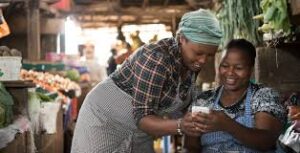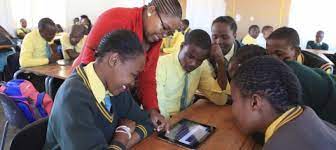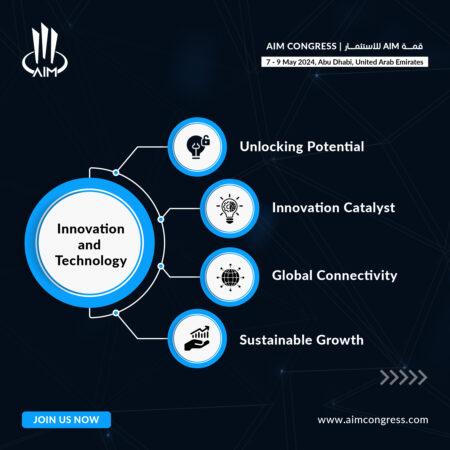An educational approach especially one that combines study in key areas like Science, Technology, Engineering and Mathematics (STEM) is critical to achieving lasting change in the continent.
An educational–based development model is a revolutionary tool in the economic sector as it fosters innovation, problem solving and creativity in real-life situations.
The approach has been adopted in most countries globally, as well as in the African continent. It has a significant impact on society, the economy and the way people relate to the natural environment.
Economic Impact
Boost to key economic sectors
Most African economies thrive on the backbone of a vibrant agricultural sector. This is the main contributor to GDP and also signifies the main economic activity to which many livelihoods sustain on. Liberia is one of the countries with a vibrant agricultural sector that majors in tree cultivation.
For assistance with your dissertation on such topics, consider reaching out to services like “write my dissertation for me, Writepaper“, where experienced professionals can provide tailored support for your academic needs.
The sector contributed to 36 per cent of the country’s GDP in 2019. Over half of the population rely on agriculture as a means of their survival. Inducing a robust educational model in the country allows for greater gains to be amassed through relevant industry capacity building and development.
Value addition in resource exploration
Mining is another key economic sector contributing to the continent’s GDP. The African continent is rich in mineral resources ranging from precious metals to fossils. Resource extraction in Africa for precious metals has been a focal point in the past, with a value addition process saved for the European export market.
Processes such as diamond cutting and polishing enable a country with a vast resource of precious metal to gain more on the export market. This has been the reason for the success story of South Africa, which at some point in time, localized almost all the world diamond mining activity.
South Africa’s once vibrant diamond market has seen a major decline in activity and economic gains. The country’s record peak in diamond production declined significantly from US$15.2 billion in 2007 to US$8.6 billion in 2016.

Some of the factors of the poor performance attribute to the shortage of cutting centres and supporting staff in the field. Low technological developments in the sector have also seen the market face huge competition from tech advancing economies like China and Vietnam.
Adopting new technologies, for instance use of advanced machinery for grinding and extracting minerals is but one example of innovations that impact productivity.
Improved Education-Industry linkages
Globalization and innovation have seen changes in how things were normally done. Industries have evolved; technology and communication systems have advanced. The education system however has lagged in this developmental phase in Africa.
The continent is still struggling to facilitate the basic human right of education to all its citizens, worse off the relevant curricula. Some countries have an outdated education curriculum.
Also Read: Tanzania: Strings of World Bank’s Education Funding
Unemployment levels have continued to surge in many countries amid poor industry and education linkages. Graduates pour into the labour market each year lacking relevant skills that are in line with current industry needs.
A revolution in the education’s curriculum, mainly encompassing the STEM model is vital for the resolution of the unemployment crisis in African countries.
Social Impact
Readdressing gender imbalances
Science and engineering professions have in the past been dominated by males. Societal beliefs and the lack of educational opportunities for the girl child contributed to such inequalities.
With the introduction of the STEM programs, an opportunity to redress gender inequalities in areas of sciences is evident. Ghana took a stance to promote more participation from the girl child by developing STEM clinics. Other countries would do well to emulate Ghana’s example.
Literacy beyond reading and writing
Literacy levels across the African continent are still low. Some countries like Zimbabwe have managed to improve their literacy rates through mass education programs. However, they face the same task with technological changes, innovations and changing global trends.
For example, digital banking has had a low uptake among the financially active people in Zimbabwe because it requires an understanding of technology and self-service banking which have not been catered for by the mass education program.
To cater for these challenges, a vibrant educational program equipped with computer learning resources, would be a positive move towards improving literacy rates in the technological era.
Environmental Impact
Adaptability to global warming and climate change
Africa has faced various weather-related calamities mainly attributable to human activities leading to global warming and rising sea levels. Rural electrification projects by governments and the adoption of cleaner energy sources go a long way in promoting a change approach Africa needs.
For instance, Botswana has the highest sunshine exposure hours in the world. Its potential for generating substantial and cheaper solar energy for its population faces some barriers concerning the knowledge of renewable energy technologies and practices.
Scientific research-based farming
Orthodox farming techniques focused on extensive farming in a rain-fed season giving little attention to other scientific issues to farming. Much focus on today’s agriculture takes great consideration to trends in weather patterns, land-use pressure and soil fertility.
Also Read: COVID lessons: Why Africa needs robust education systems
Robust educational models will allow technology to thrive boosting scientific research. For example innovations such as greenhouse farming have facilitated year–round farming giving high yields. A case in point is Ngarma farm in the dry region of Naishava in Kenya that is turning the adverse climatic conditions of the area into a thriving agricultural hub through the adoption of greenhouse farming.
Intensive farming approaches are now being adopted to improve the yield per unit area, as pressure on land use escalates with rapidly increasing populations. Plantations around Africa are facing huge land use pressure from other agricultural uses. Through education models geared towards research and science, African countries can develop strategies to foster an economically viable balance for land use which is vital for the success of the country’s economy.
Overview
Robust educational models build a foundation for a responsive, innovative and adaptive future generation. The impacts go beyond the direct beneficiary of the educational program.
The economic and social structures of the African continent will benefit significantly from the efforts being echoed by promoting education. Greater engagement of the program, as well as continued support from governments, will ensure the realization of such gains.











